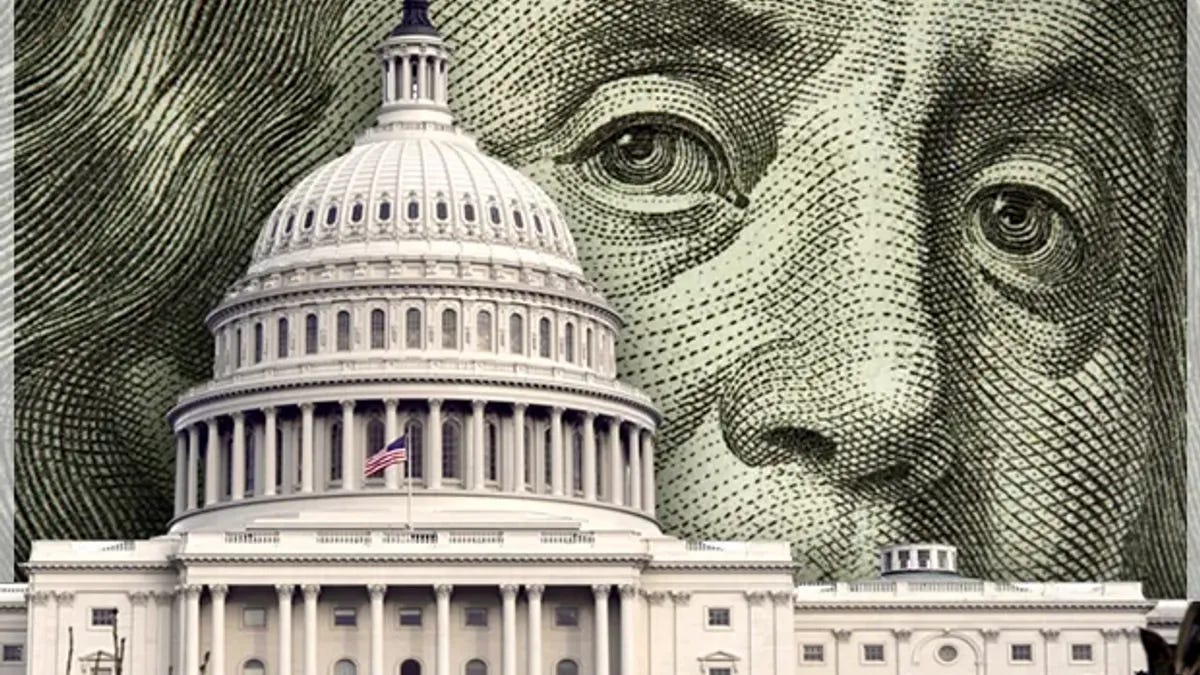Thank you for joining me today in the first of our discussions of the contradictions between the common good and American capitalism. For the next 10 weeks, we’ll examine what’s really going on.
If you want to understand where American capitalism is now and what you might do to help move it in a more humane direction, you need to look under the hood.
First, forget politics as you’ve come to see it as electoral contests between Democrats and Republicans. Think power. The underlying contest is between a small minority who are gaining power over the system and the vast majority who have little or none.
Next, forget what you may have learned about the choice between the “free market” and government. A market cannot exist without a government to organize and enforce it. The important question is whom the market has been organized to serve.
Forget the standard economic goals of higher growth and greater efficiency. The issue is who benefits from more growth and efficiency.
Don’t be dazzled by “corporate social responsibility.” Most of it is public relations. Corporations won’t voluntarily sacrifice shareholder returns unless laws require them to.
Even then, be skeptical of laws unless they’re enforced and backed by big penalties. Large corporations and the super-rich ignore laws when the penalties for violating them are small relative to the gains for breaking them. Fines are then simply very manageable costs of doing business.
Don’t assume that we’re locked in a battle between capitalism and socialism. We already have socialism — for the very rich. Most Americans are subject to harsh capitalism.
Don’t define “national competitiveness” as the profitability of large American corporations. Those corporations are now global, with no allegiance to America. Real national competitiveness lies in the productivity of the American people — which depends on their education, health, and infrastructure linking them together.
You can also forget the ups and downs of the business cycle. Focus instead on systemic changes that have caused the wealth and power of a few to dramatically increase during the last 40 years at the expense of the many.
Forget the old idea that corporations succeed by becoming better, cheaper, or faster than their competitors. They now succeed mainly by increasing their monopoly power.
Forget the standard assumption that inflation is caused by wages pushing up prices. It’s caused by monopolistic corporations seeking more profits by raising prices.
Forget any traditional definition of finance. Think instead of a giant gambling casino in which bets are made on large flows of money, and bets are made on those bets (called derivatives). The biggest winners have better inside information than anyone else.
Don’t confuse attractive policy proposals with changes in the system as a whole. Even if enacted, such proposals at most mitigate systemic problems. Solving those systemic problems requires altering the allocation of power.
Don’t assume the system is stable. It moves through vicious spirals and virtuous cycles. We are now in a vicious spiral. The challenge is to turn the vicious into the virtuous.
Don’t assume that the central problem is Donald Trump. Trump is the culmination of decades of growing distrust in the system. His followers are attracted to a neofascist strongman who they think will stick it to the establishment. They’re wrong, of course, but the larger question is why they have such distrust in the system.
Don’t believe the system is a meritocracy in which ability and hard work are necessarily rewarded. Today the most important predictor of someone’s future income and wealth is the income and wealth of the family they’re born into.
Don’t separate race from class. Racial discrimination is aggravating class divides, and wider inequality is worsening racial divides.
Think systemically. Most people’s incomes haven’t risen for four decades, and they are becoming less economically secure. Meanwhile, climate change is intensifying competition for arable land and potable water around the world, generating larger flows of refugees and immigrants. Together, they allow demagogues to fuel bigotry by blaming immigrants for the stagnant incomes and economic insecurity.
Most importantly, understand the nature of power — who possesses it and why, how it is wielded, and for what purposes. Power is the ability to direct or influence the behavior of others. On a large scale, power is the capacity to set the public agenda — to frame big choices, to influence legislators, and to get laws enacted or prevent them from being enacted, to assert one’s will on the world.
Power has been leached out of conventional discussions about what is occurring. Power doesn’t show up in standard economics texts, finance courses, or even political science and law. But you cannot understand American capitalism today without confronting power head on. It is the most important subterranean force.
Power is exercised through institutions — big Wall Street banks, global corporations, the executive and legislative branches of government, the Federal Reserve and the Supreme Court, the military, elite universities, and the media (including social media as organized by Big Tech).
But these institutions don’t wield power on their own. Particular people have outsized influence over them. As Greta Thunberg observes, “If everyone is guilty, then no one is to blame. And someone is to blame. Some people — some companies and some decision-makers in particular — have known exactly what priceless values they are sacrificing to continue making unimaginable amounts of money.”
To comprehend who has influence over the system, you’ll need to understand the role of wealth. Power and wealth are inseparable. Great wealth flows from great power; great power depends on great wealth. Wealth and power have become one and the same.
There is much more to talk about, but I don’t intend for these or other underlying realities to make you more cynical about the system or resigned to its intransigence.
To the contrary, the first step toward changing the system is to understand it. If we cannot comprehend the truth, we become entrapped in conventional falsehoods and false choices, unable to envision new possibilities. Seeing the system for what it is will empower you to join with others to change it for the better.
Next week, we’ll take on the biggest mythology underlying American capitalism, which has prevented us from seeing the whole.
Thank you for joining me on this expedition. Please add your comments, take part in our discussion, and share with others.
Subscribers to this newsletter are keeping it going. If you are able, please consider a paid or gift subscription.










If any candidate for a federal office cannot pass a National Security Questionaire to obtain a Top Secret-SCI clearance, then why are they allowed to run, campaign, take campaign contributions and eat up so much news time? I was a military recruiter for 17 of my 23 years of military service. I couldn't send a new recruit to basic training if they has so much as an unpaid speeding ticket until it was adjudicated and had proof of case closed. Trump flunks the test on 100+ levels. He should never again have access to TS-SCI information or hold the nuclear football. Why is nobody talking about this? Why isn't this an issue? It needs to be. The media needs to address this issue.
Capitalism's best partner is socialism. Imagine two societies one which practices rank laissez-faire economics where it's dog-eat-dog and survival of the fittest and another which gives it's citizens free healthcare, education and makes sure no one is hungry or homeless and has a path to success, all of which is paid for by taxing the very rich. If that means no more luxury planes or boats and not owning ten mansions around the globe, tough shit lads, grow the fuck up.